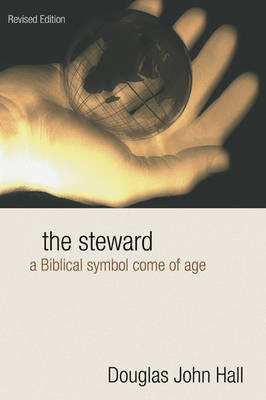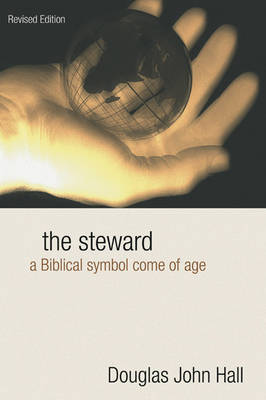
- Retrait gratuit dans votre magasin Club
- 7.000.000 titres dans notre catalogue
- Payer en toute sécurité
- Toujours un magasin près de chez vous
- Retrait gratuit dans votre magasin Club
- 7.000.0000 titres dans notre catalogue
- Payer en toute sécurité
- Toujours un magasin près de chez vous
Description
The biblical image of the steward is highly provocative and even revolutionary. In recent years, environmentalists and peace marchers have been discovering the radical potential of the stewardship motif, while the church, sadly, has muffled this symbol's power in ecclesiastical wrappings. So writes Douglas John Hall in the first edition of 'The Steward' (1982). This provocative book has been so much in demand all over the world that Hall has completely rewritten, revised, and expanded his work, adding new material and deleting dated references. Yet Hall has kept his original book's basic format the same in this new and improved edition. In short, Hall aims to recapture the most basic meaning of the biblical metaphor of the 'steward' and to apply that meaning to our social context, one in which human beings are confused and ambivalent about their place and vocation in a threatened world. Working from numerous angles - biblical, historical, sociological, theological, and ecclesiastical - Hall explores the rich meaning and implications of stewardship. Scripture portrays the steward as a caretaker and servant. Hall compares scriptural teaching on stewardship - concentrated in Jesus' parables - with the role of stewardship in the church's history, maintaining that ever since the fourth century, the church's understanding and practice of stewardship have been distorted by its alliance with institutional power. Hall also puts forth apocalyptic warnings about the fate of the earth unless we heed the call to be stewards of the creation, work for world peace and justice, and nurture life in its many forms. The church around the world, says Hall, urgently needs to live as 'steward' - it is a matter of death and life.
Spécifications
Parties prenantes
- Auteur(s) :
- Editeur:
Contenu
- Nombre de pages :
- 272
- Langue:
- Anglais
Caractéristiques
- EAN:
- 9781592447664
- Date de parution :
- 21-07-04
- Format:
- Livre broché
- Format numérique:
- Trade paperback (VS)
- Dimensions :
- 144 mm x 216 mm
- Poids :
- 335 g

Les avis
Nous publions uniquement les avis qui respectent les conditions requises. Consultez nos conditions pour les avis.






